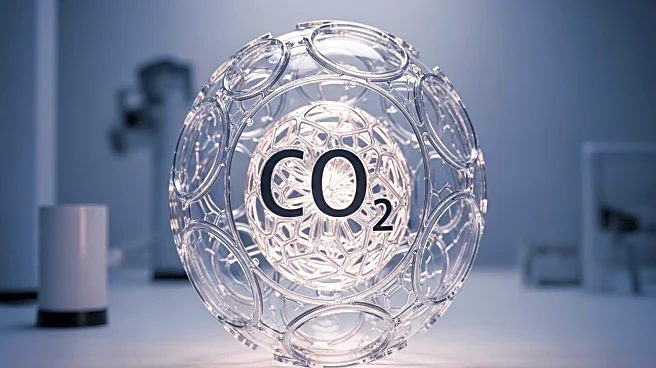What's Happening?
Researchers at the University of Copenhagen have developed a method to transform plastic waste into a material capable of capturing CO2 efficiently. This innovation addresses two major global challenges: plastic pollution and the climate crisis. The process involves converting decomposed PET plastic into a new material called BAETA, which can absorb CO2 from the atmosphere. The technology is designed to be scalable and suitable for industrial applications, potentially revolutionizing carbon capture efforts. The research, supported by the Novo Nordisk Foundation CO2 Research Center, aims to provide a sustainable solution by utilizing plastic waste that is difficult to recycle.
Why It's Important?
This development is significant as it offers a dual solution to environmental issues by reducing plastic waste and capturing greenhouse gases. The ability to transform plastic waste into a resource for CO2 capture could lead to substantial environmental benefits, including cleaner oceans and reduced atmospheric CO2 levels. Industries could adopt this technology to mitigate their carbon emissions, potentially influencing global climate policies and encouraging investment in sustainable technologies. The approach also supports recycling efforts by targeting plastic that is unsuitable for traditional recycling methods.
What's Next?
The researchers plan to scale up the production of the BAETA material and seek investments to establish it as a viable business venture. The next steps involve persuading decision-makers to invest in this technology, which could lead to significant changes in industrial carbon capture practices. The team is also exploring the possibility of using decomposed PET plastic from oceans, which could create economic incentives for ocean cleanup initiatives.
Beyond the Headlines
The invention challenges the perception of climate and environmental issues as separate problems, suggesting integrated solutions. By creating economic incentives for ocean cleanup, the technology could shift how industries and governments approach environmental sustainability. The collaboration with recycling efforts highlights the potential for synergistic approaches to waste management and climate mitigation.








